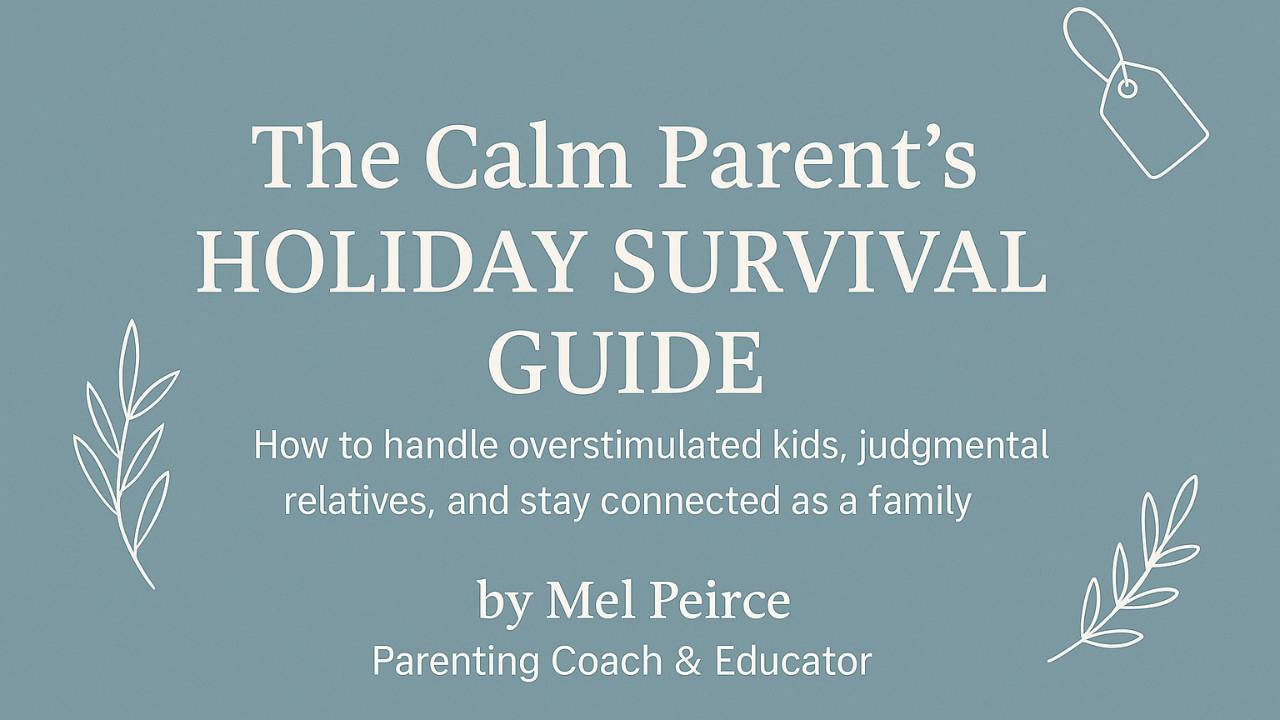Help Your Child Navigate Friendships
Feb 16, 2023
Do you have a child going through a tough time with a friend? Learning how to navigate friendships can be hard for children, and heartbreaking for parents.
At one of my recent workshops, there was a Mom whose 7-year-old was struggling with his long-time best friend. Her son was coming home in tears, and she was in tears herself not knowing how to help.
I started by asking the Mom to check in with herself first. Her heart was hurting for her son, which is normal and expected. When our kids experience hurt feelings, we hurt for them. Unfortunately, that hurt can drive us to react or respond in unhelpful ways, so awareness is key.
The second piece of advice I had was for her to recognize that she was stuck in confusion and the land of “I don’t know how to help”. I explained that our brains are very literal. When you think I don’t know how to help, your brain shuts down because you’ve already told it “I don’t know”. I invited the Mom to switch from telling herself “I don’t know how to help” to “How can I help?”.
I asked the Mom if she could acknowledge that it was hard and hurt, AND still show up powerfully as a parent and support her son.
Then we moved on to how she can support her son. I encouraged her to name and validate her son’s feelings. Naming and validating is an important step in teaching your child about different feelings and how to handle them.
You're so sad Jacob wouldn’t let you play with him.
It hurts when you're left out.
You thought he was a good friend but he didn’t include you in games at recess.
That hurt your feelings.
I understand.
When our kids feel heard and understood, they feel more connected, they are more likely to share and continue to talk to us, and they are more open to our help. We help our kids trust that we can support them when they are struggling.
Depending on the age of your child, I recommend that you stop here and ask if your child wants your help or just wants you to listen. Younger children are likely more open to help and suggestions, while older children may just want to vent.
If your child is open, this is a great opportunity to help them develop problem-solving skills by asking if they have any ideas on how they might best handle the situation. See what ideas they have, and help them prepare in advance for a variety of different challenges they may face in navigating the situation.
Kids have to learn how to navigate conflict and this is something you can help them practice ahead of time. You do this by coming up with the words and a strategy your child can use to tell their friend when they have hurt their feelings.
Kids can also be very negative or down on themselves when something like this happens. I recommend coming up with a couple of sentences that they can repeat to themselves when they are in the middle of a tough situation like I can handle this, no matter what I know I’m still a good friend, or we are friends having a tough time. This is how you help influence positive self-talk.
Finally, make sure that they have a strategy of what else they can do at recess if they’re not included!
I also invite you to help your child decide how they want their friendships to feel, and set the expectation that friendships should feel good. This is a great time to help your child notice the difference between how it feels when someone is treating you unkindly and when someone is being a good friend. Empower your child with the knowledge that they can decide to not be friends with someone that is consistently unkind.
As a parent of older children, I have struggled through this many times myself. Although they were difficult and heartbreaking times, I’ve seen how having multiple challenges with friends over the years has really honed my children’s social and communication skills as well as their ability to navigate through tricky social situations. In the end, I’m so grateful my kids went through those friendship challenges because of the long-term skills they gained that are now so helpful.
I invite you to be patient with your kids and yourself as they awkwardly stumble through learning how to navigate friendships, and if you really have concerns about the situation being bigger than they can handle on their own — make sure to ask for help from teachers, administrators, or other parents.
This is just one of the tools in the Confident Parenting Toolbox. The more tools you have, the easier it is to address and handle challenges like a parenting pro. If you’ve been struggling with challenges with your kids, consider adding some new tools to your parent toolbox. Schedule a free call here, to learn more about all of the different resources available and how I can help.
Join the Confident Parenting Community.
Receive the latest tips and tools from the Confident Parenting Toolbox to support your kids
(and yourself!) with today's challenges so your whole family can thrive.
We hate SPAM. We will never sell your information, for any reason.


